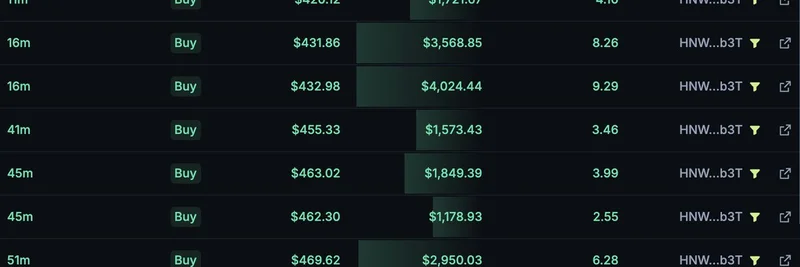Hey there, crypto enthusiasts! If you’ve been glued to Crypto Twitter (CT) lately, you might’ve noticed a growing conversation about something deeper than price charts and memecoins. On August 8, 2025, hitesh.eth (@hmalviya9) dropped a thought-provoking post that’s got people talking. Titled "Mental Health Crisis in Crypto," this tweet shines a spotlight on the hidden toll that the crypto grind can take on your mind—and it’s a must-read for anyone navigating this wild blockchain world.
The Silent Struggle on Crypto Twitter
Hitesh’s post kicks off with a bold question: “How many folks on CT actually talk about mental health?” It’s a fair point. While CT is buzzing with trading tips, meme coin hype, and market predictions, the emotional rollercoaster of crypto trading often gets ignored. Hitesh points out that many traders might not even realize they’re suffering—feeling mentally numb, anxious, or disconnected without knowing why.
He links back to an earlier thread where he dives into how CT has morphed from a hopeful community into a “psychological minefield.” The constant scroll—checking charts, chasing the next big win, comparing yourself to others—can trap you in a loop. “You wake up. You check charts. You feel behind,” he writes. Sound familiar? This relentless cycle can hijack your attention, leaving you reactive and hollow.
Why Mental Health Matters in Crypto
Crypto’s volatility is no secret. Unlike traditional stocks, where markets close and you get a break, crypto trades 24/7. As noted in a CoinDesk article on staying sane while trading, this nonstop action can wreak havoc on your nervous system. Add in the pressure from social media hype and the fear of missing out (FOMO), and it’s easy to see why traders might develop addiction-like behaviors—trading compulsively even at a loss.
Hitesh’s thread highlights a key issue: the influx of “Ivy League folks and centralized authorities” into crypto has turned it into a hyper-competitive space. What started as a dream of decentralization and fairness has, for some, become a grind where retail investors are left with “breadcrumbs.” This shift can leave you feeling exploited, like you’re just “someone else’s exit liquidity.”
Signs You Might Be Struggling
So, how do you know if CT is affecting you? Hitesh lists some red flags: broken sleep, shattered confidence, unpredictable emotions, and an inability to focus on anything outside crypto. Maybe you’re skipping family calls, eating junk at odd hours, or feeling anxious when offline. If that resonates, you’re not alone—and it’s not too late to take action.
Breaking Free: Practical Steps to Reclaim Your Mind
The good news? Hitesh offers a roadmap to escape this mental cage. It starts with admitting you’re trapped and taking small, intentional steps to unplug. Here’s what he suggests:
- Take a Break: Start with one day off, then two. Uninstall trackers and mute the noise.
- Reconnect: Go for walks without your phone, cook a meal, or chat with people who don’t care about crypto.
- Build New Habits: Read long-form content, write, or learn a skill unrelated to market cycles.
- Practice Mindfulness: Spend 30 minutes a day breathing, reflecting, and rebuilding discipline.
These steps echo advice from experts like those at A Place of Hope, who link crypto trading’s ups and downs to gambling-like stress. By stepping back, you can rediscover peace and rebuild your sense of control.
A Wake-Up Call for the Crypto Community
Hitesh’s post ends with a plea: “Don’t waste your youth on something where the odds of losing both your money and your mind are 95 percent.” It’s a stark reminder that while crypto offers opportunities, the mental cost can be steep. He encourages delaying gratification for long-term rewards—turning effort into meaning rather than chasing quick wins.
The responses to his tweet show a mix of support and skepticism. Some, like Edward Castillo, agree it’s a real issue, while others, like Dr Rafa, note that mental health is rarely prioritized on CT. This diversity of thought underscores the need for more open conversations in the space.
Final Thoughts
As we head into the latter half of 2025, the crypto landscape continues to evolve—and so should our approach to it. Hitesh’s post isn’t just a warning; it’s an invitation to prioritize your well-being alongside your wallet. Whether you’re a seasoned trader or a meme coin newbie, taking care of your mental health is the ultimate long-term investment.
So, what do you think? Have you felt the CT grind wearing you down? Drop your thoughts in the comments, and let’s keep this conversation going. For more insights on crypto trends and self-care, check out our Meme Insider knowledge base!



